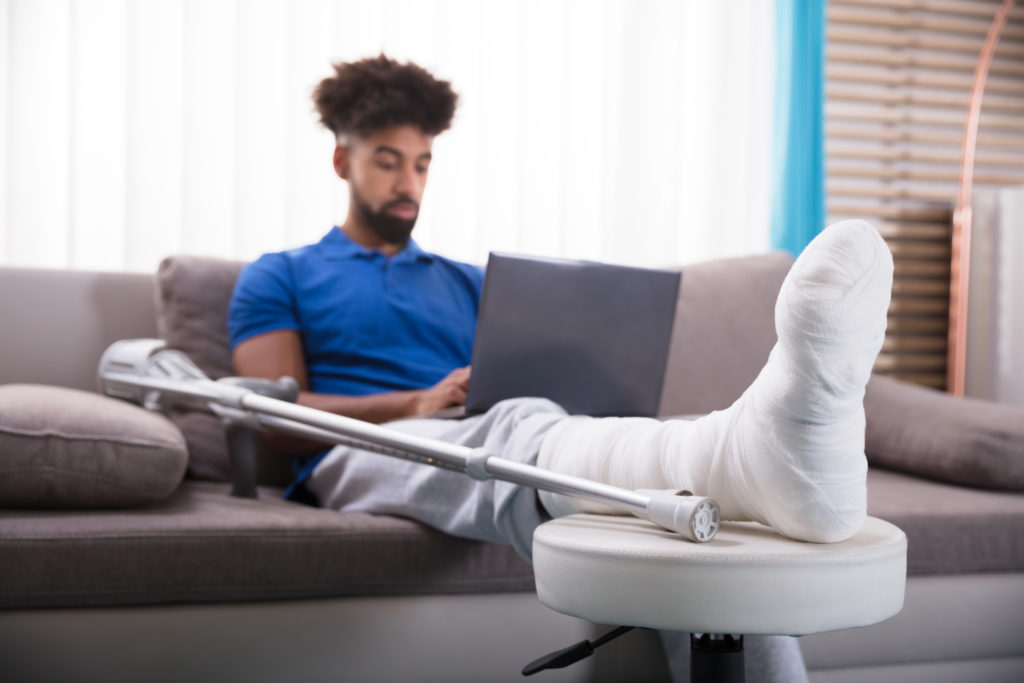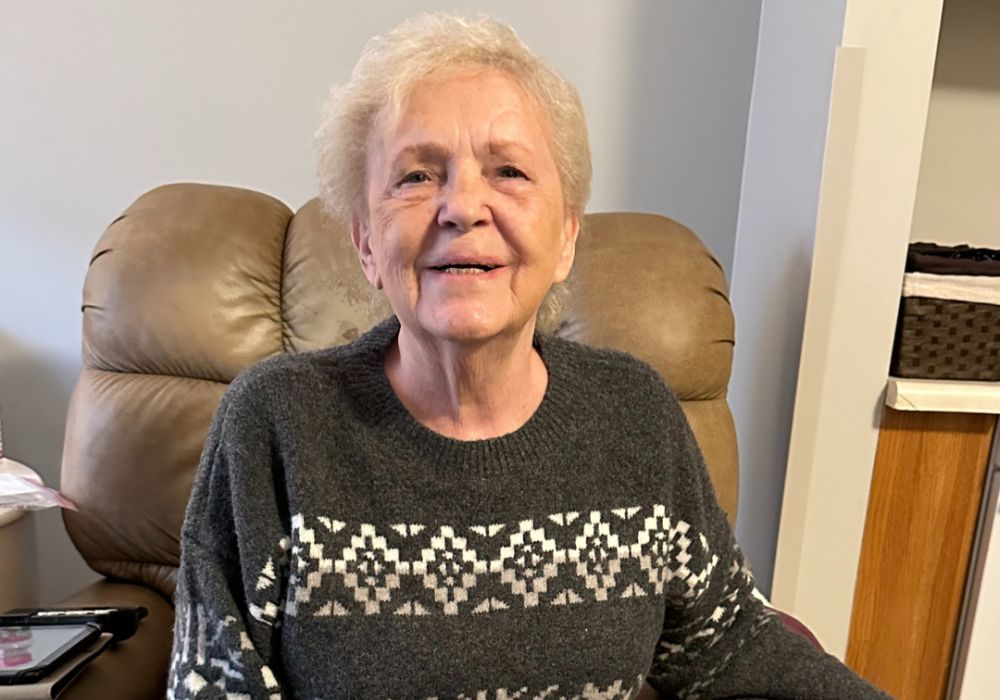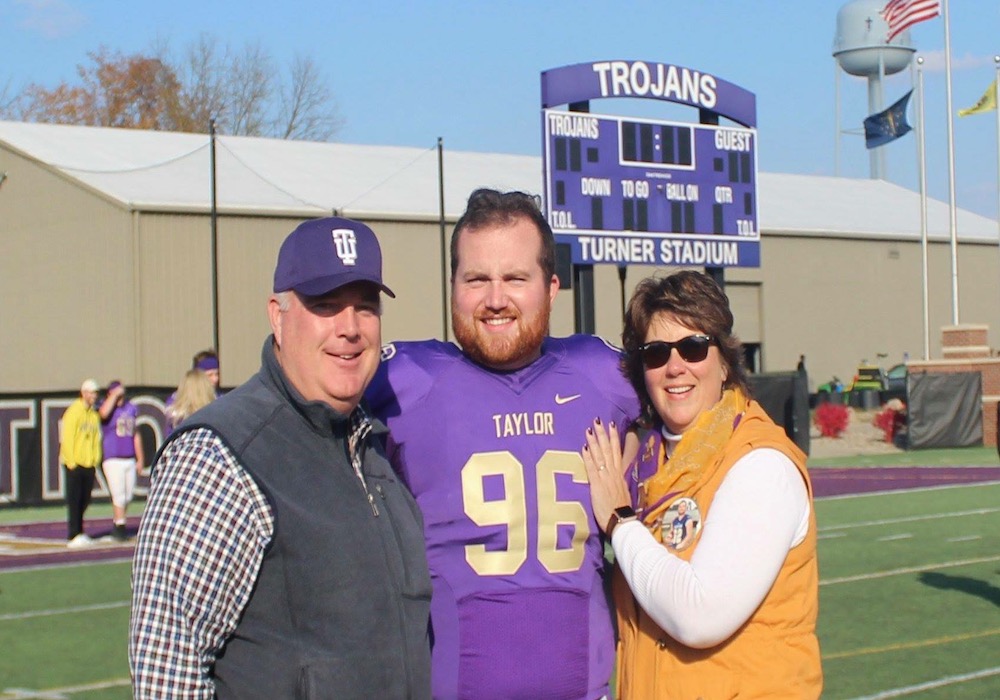An open fracture, also referred to as a compound fracture, is when there is an open wound or break in the skin near the fractured bone (broken bone). Typically, this occurs when a fragment of bone breaks through the skin at the moment of injury.
An open fracture is a medical emergency. Call 911 or go to your nearest emergency room. OrthoIndy Trauma physicians are at St.Vincent Indianapolis Level I Trauma Center.
What causes an open fracture?
- High energy impacts such as a car accident or gunshot
- Fall from a height at home
- Injury playing sports
What are the symptoms of a compound fracture?
Open fracture symptoms vary in severity. Sometimes skin loss is obvious, and bone can be seen through the wound. In other less extreme cases, the wound may be no larger than a puncture.
With any type of open fracture, the damage to the soft tissue around the bone, such as muscles, tendons, nerves, veins and arteries, can be extensive.
Open fracture guidelines
The severity of an open fracture depends on several factors:
- Size and number of the broken bone fragments
- The location of the wound
- Whether or not the soft tissues in the wound area have an adequate blood supply
- The damage to surrounding soft tissues
Open fracture complications
Contamination and infection are a concern with any open fracture. Dirt, broken glass, mud, etc. can easily enter an open wound and cause infection. Your trauma doctor will want to know the setting, where the injury occurred to determine the best course of treatment and to prevent infection. Delayed treatment of open fractures can also cause complications with healing, it is best to seek care immediately.
How do you treat a compound fracture?
Open fracture first aid
An open fracture requires different treatment than a closed fracture because once the skin is broken, the wound is in danger of being infected. Early and immediate treatment in an emergency room is always necessary for an open fracture. Immediate treatment allows the wound, surrounding tissue and bones to be surgically cleaned and antibiotics can be given right away to prevent infection. Furthermore, the broken bone must be stabilized to allow the wound to heal.
In the emergency room, your trauma surgeon will evaluate your injury and check for other injuries. After careful examination of the wound and assessment of the soft tissues, nerves and circulation surrounding the wound, tests may be necessary. Tests may include X-rays, MRI or CT scans.
To help prevent infection, you will be given antibiotics and a tetanus booster, if you have not had one within five years.
If immediate emergency surgery is not necessary, your broken bone will be stabilized with a splint and your wound will be covered with sterile dressings until you are taken to surgery.
MAKE AN APPOINTMENT WITH AN ORTHOINDY TRAUMA SPECIALIST
Do open fractures require surgery?
Almost all open fractures are treated in an operating room with surgery. Surgery ensures that the wound can be cleaned out to prevent infections and the bones can be properly placed for correct healing. Sometimes metal implants such as plates, rods or screws will be used to maintain the position of the bone and hold it together while the fracture heals.
How long does it take a compound fracture to heal?
Returning to your normal daily activities depends on the type of fracture and the severity of the injury. Some broken bones take longer to heal than others. It is common to have discomfort and weakness for several months after an injury. Your trauma specialist will discuss your concerns and set expectations for you to follow.
In any open fracture, physical therapy will help restore muscle strength, joint motion and flexibility. Your doctor or a physical therapist will help you with an exercise plan specifically for your injury and recovery needs.
Learn more about trauma care at OrthoIndy.
Schedule an appointment
Your well-being is important to us. Click the button below or call us to schedule an appointment with one of our orthopedic specialists. If your injury or condition is recent, you can walk right into one of our OrthoIndy Urgent Care locations for immediate care. For rehabilitation and physical therapy, no referral is needed to see one of our physical therapists.





